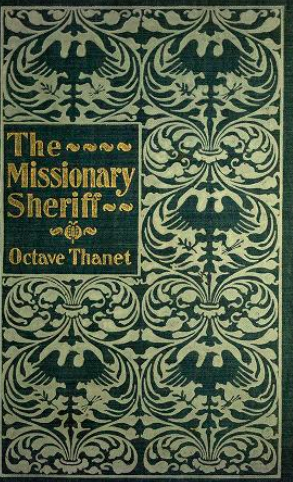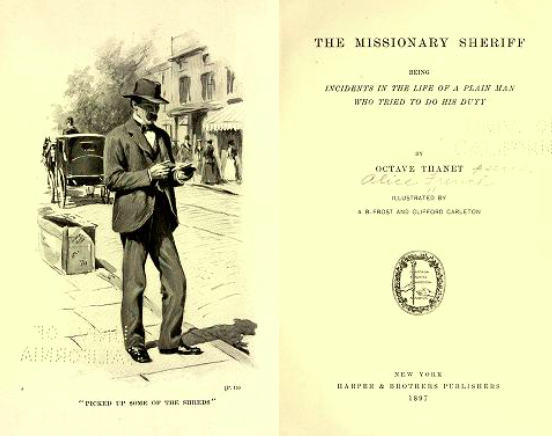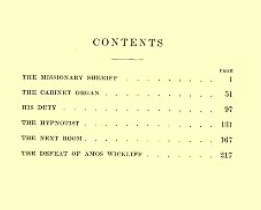In 1895, Alice's investments paid high dividends and her writing earned her more than $3,600. Henry Mills Alden had bought a short story, "The Missionary Sheriff," for $620, the most she had ever received for a story, and it was her first to be published in Harper's Magazine. Shortly after it was accepted, Harper and Brothers sent a letter asking that she write a series of short stories to be published first in Harper's Magazine and then to be issued by the publishing house in a single volume in 1897. --McMichael, p. 145.
0 Comments
Basic summary: This is an oddly cute story about a Governor at home who is approached by the mother of Fritz Jansen, a man sentenced to hang for the murder of his fiancee. The woman is German and speaks very little English. Luckily, the Governor's wife, Annie, is fluent in German. The woman tells of walking 15 miles to get to him before her son's execution. She asks for a pardon, as her son is a good man who would never do such a crime. Annie pleads with her husband to stay the execution--if he's truly guilty, why not give him a life sentence so his mother doesn't suffer. The Governor counters that to do so would be worse for Fritz's mother than executing him. If she hates the Governor, Very well , so be it . She will still have her memories of his youth to console her, and her very conviction of the injustice of his fate will be a comfort to her; while, on the other hand, if I release him, he will dissipate all her illusions, neglect her, ill-treat her, very likely spend every cent of her hard earnings, and at last convince even that trusting soul what a brute he is. It is the truest kindness to her to refuse." (Thanet, 299) The day after Fritz is hanged, the mother returns with her son, Fritz. It turns out there were two men with the same name, and her son was never arrested. Because he doesn't want to share the name with such a bad man, Fritz and his mother come to the Governor for a name change. Annie declares he'll change the name as a wedding gift to Greta and Fritz. The wedding is briefly described and the story ends with Annie and the Governor relieved at the outcome.
In the end, the Governor makes the comment that he would have been so embarassed if he'd followed Annie's "feminine" mind and pardoned the evil Fritz. He asks her who was right, and she exclaims, "Both of us" (Thanet, p. 299). |
About this project:I've been saying since 2004 that I was going to write a critical biography of Octave Thanet (Alice French). This blog is the start of that work and will include notes, links to research, and other OT related tidbits. Archives
February 2023
Categories
All
|



 RSS Feed
RSS Feed